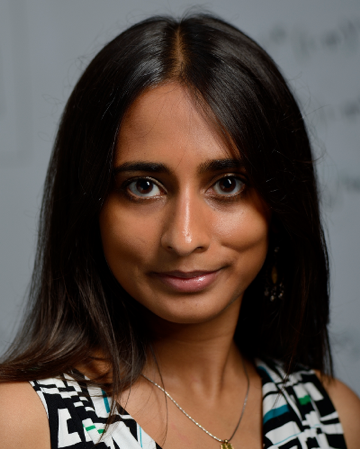
ECE Seminar
Deep-Generative Hybrid Learning as a New Window into Brain Dysfunction
Add to Google Calendar

Abstract:
Deep learning has disrupted nearly every major field of study from computer vision to genomics. The unparalleled success of these models has, in many cases, been fueled by an explosion of data. Millions of labeled images, thousands of annotated ICU admissions, and hundreds of hours of transcribed speech are common standards in the literature. Clinical neuroscience is a notable holdout to this trend. It is a field of unavoidably small datasets, massive patient variability, and complex (largely unknown) phenomena. My lab tackles these challenges across a spectrum of projects, from answering foundational neuroscientific questions to translational applications of neuroimaging data to exploratory directions for probing neural circuitry. One of our key strategies in this domain is to blend the structure and interpretability of classical methods with the representational power of deep learning.
This talk will highlight two ongoing projects that epitomize this strategy. First, I will showcase a dictionary learning framework to predict complex behavioral deficits from brain connectivity data. The generative portion of this model uses a structurally regularized orthogonal decomposition to extract template functional subnetworks associated with a disorder. This model is coupled with a recurrent neural network to parse the evolving brain states for greater predictive power. Second, I will present a hierarchical Bayesian framework for epileptic seizure detection from scalp EEG. The latent variables in this model capture the spatiotemporal spread of a seizure; they are complemented by a nonparametric likelihood based on convolutional neural networks. I will also highlight our current end-to-end extensions of this work focused on seizure onset localization. Finally, I will conclude with exciting future directions for our work across the foundational, translational, and exploratory axes.
Biography:
Archana Venkataraman is a John C. Malone Assistant Professor in the Department of Electrical and Computer Engineering at Johns Hopkins University. She directs the Neural Systems Analysis Laboratory and is a core faculty member of the Malone Center for Engineering in Healthcare and the Mathematical Institute for Data Science. Dr. Venkataraman’s research lies at the intersection of artificial intelligence, network modeling and clinical neuroscience. Her work has yielded novel insights in to debilitating neurological disorders, such as autism, schizophrenia, and epilepsy, with the long-term goal of improving patient care. Dr. Venkataraman completed her B.S., M.Eng. and Ph.D. in Electrical Engineering at MIT in 2006, 2007 and 2012, respectively. She is a recipient of the MIT Provost Presidential Fellowship, the Siebel Scholarship, the National Defense Science and Engineering Graduate Fellowship, the NIH Advanced Multimodal Neuroimaging Training Grant, the CHDI Grant on network models for Huntington’s Disease, numerous best paper awards, and the National Science Foundation CAREER award. Dr. Venkataraman was also named by MIT Technology Review as one of 35 Innovators Under 35 in 2019.
 MENU
MENU 
